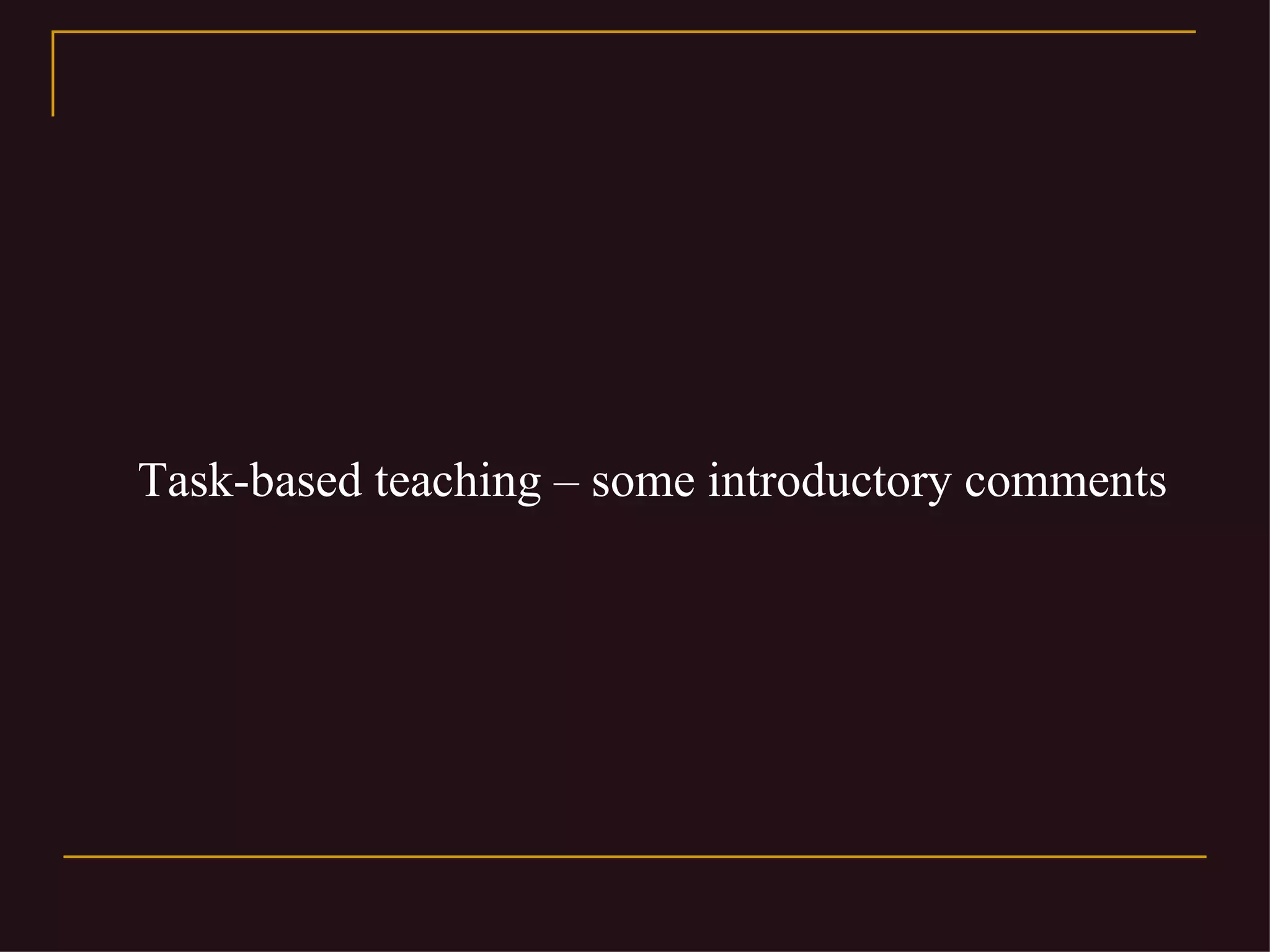This document introduces task-based language teaching and discusses its key principles and methodology. It defines what a task is, provides an example task, and discusses considerations for analyzing tasks. It then outlines the typical structure of task-based lessons including pre-task, main task, and post-task phases. Various options for each phase are presented, particularly focusing on ways to incorporate implicit and explicit attention to linguistic form. Challenges of task-based teaching are also addressed.




































